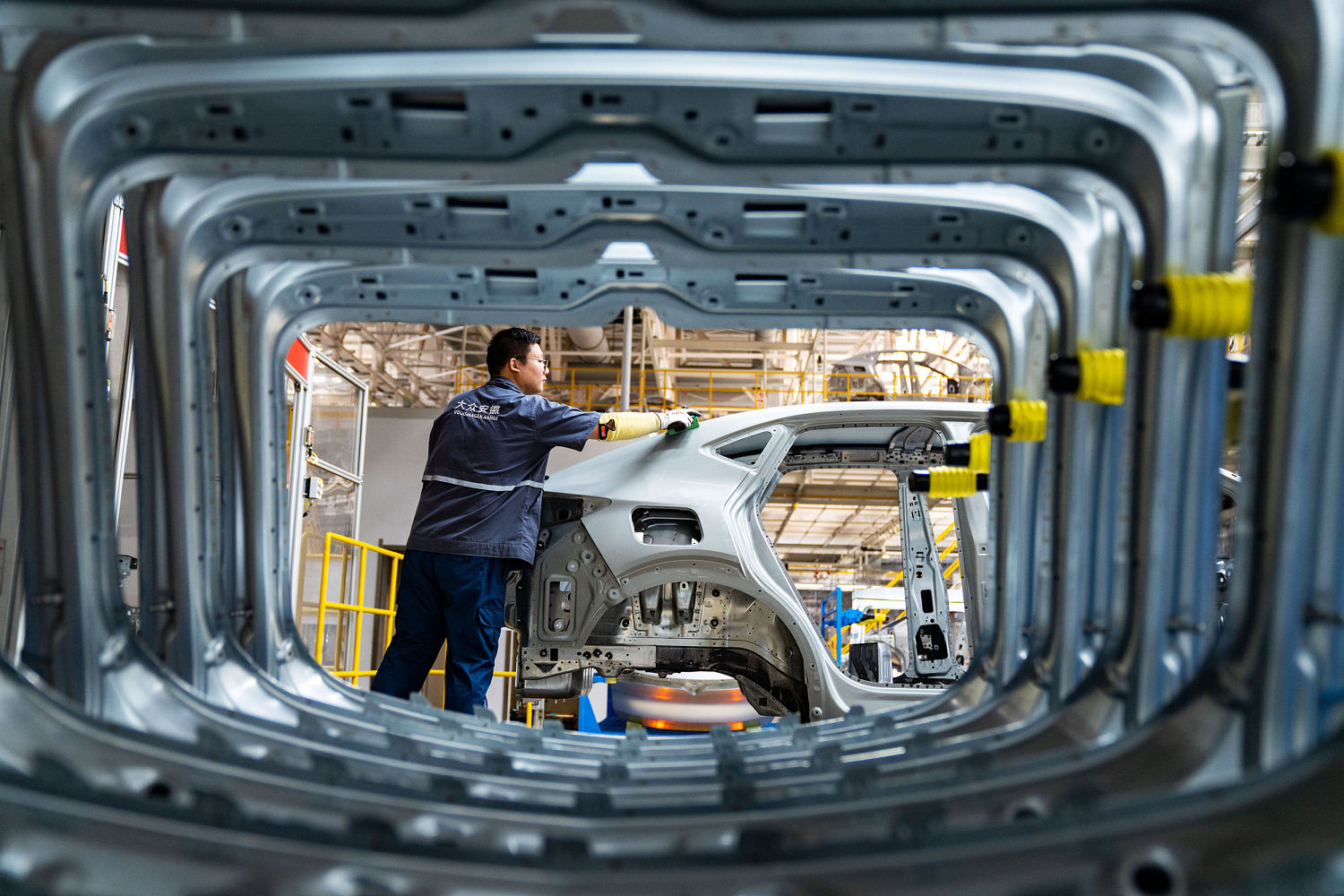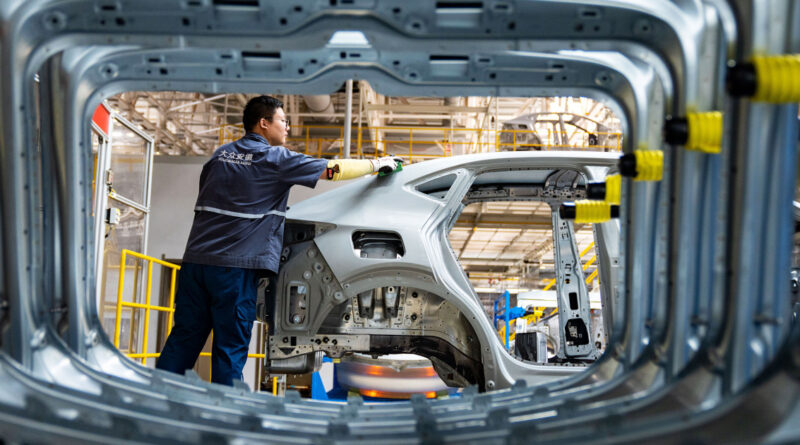The E.U. is imposing duties on electric vehicles from China after trade talks fail

BRUSSELS, Belgium — The European Union is imposing duties on imports of electric vehicles from China starting Wednesday after talks between Brussels and Beijing failed to find an amicable solution to their trade dispute.
Electric vehicles have become a major flashpoint in a broader trade dispute over the influence of Chinese government subsidies on European markets and Beijing’s burgeoning exports of green technology to the bloc.
“By adopting these proportionate and targeted measures after a rigorous investigation, we’re standing up for fair market practices and for the European industrial base,” European Commission Executive Vice President Valdis Dombrovskis said Tuesday.
“In parallel, we remain open to a possible alternative solution that would be effective in addressing the problems identified and (World Trade Organization)-compatible,” he added. The duties would stay in force for five years, unless an amicable solution is found.
According to the commission, which manages trade disputes on behalf of the 27 E.U. member countries, sales of Chinese-built electric cars jumped from 3.9% of the EV market in 2020 to 25% by September 2023, in part by unfairly undercutting E.U. industry prices.
The duties on Chinese manufacturers will be 17% on cars made by BYD, 18.8% on those from Geely and 35.3% for vehicles exported by China’s state-owned SAIC. Geely has brands including Polestar and Sweden’s Volvo, while SAIC owns Britain’s MG, one of Europe’s bestselling EV brands.
Other EV manufacturers in China, including Western companies such as Volkswagen and BMW, would be subject to duties of 20.7%. The commission has an “individually calculated” rate for Tesla of 7.8%.
China’s Commerce Ministry objected to the measures as protectionist and unfair.
“China does not agree with it and will not accept the ruling,” the ministry’s statement said. “China will continue to take all necessary measures to resolutely safeguard the legitimate rights and interests of Chinese companies.”
The E.U.’s retaliatory duties have run into opposition in Germany, which has Europe’s biggest economy and is home to major automakers.
Hildegard Müller, the head of Germany’s auto industry association, VDA, said the imposition of the tariffs is “a setback for free global trade and so for prosperity, the preservation of jobs and Europe’s growth.” She said the move increases the risk of a far-reaching trade conflict.
“The industry is not naive in dealing with China, but the challenges must be resolved in dialogue,” Müller said in a statement.
The measures were published in the bloc’s legal Official Journal late Tuesday, meaning duties entered into force as of midnight, said E.U. spokeswoman Arianna Podesta.
The commission says China expanded its E.U. market share with the help of subsidies across the production chain. These ranged from cheap land for factories provided by local governments, to cut-price supplies of lithium and batteries from state-owned enterprises, to tax breaks and easy financing from state-controlled banks.
The rapid growth in China’s market share has raised concern in the E.U. that Chinese cars will eventually threaten the E.U.’s ability to produce its own green technology to combat climate change. Business groups and unions also fear that the jobs of 2.5 million auto industry workers could be put in jeopardy, as well those of 10.3 million more people whose employment depends indirectly on EV production.





